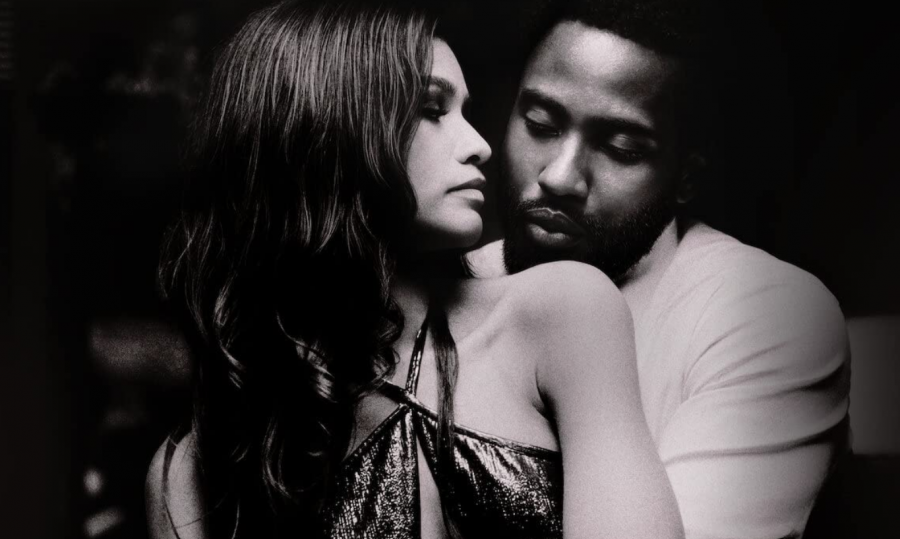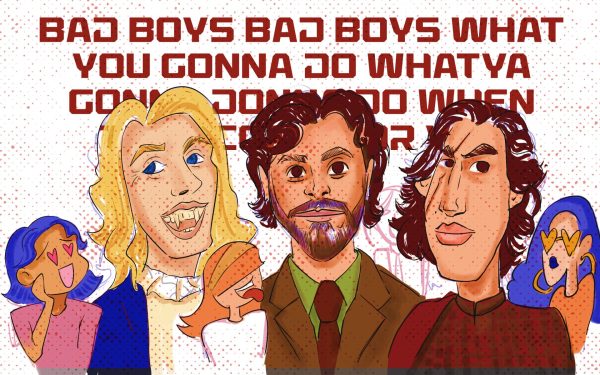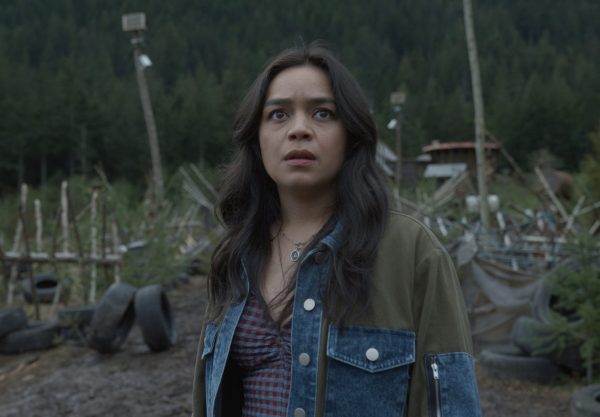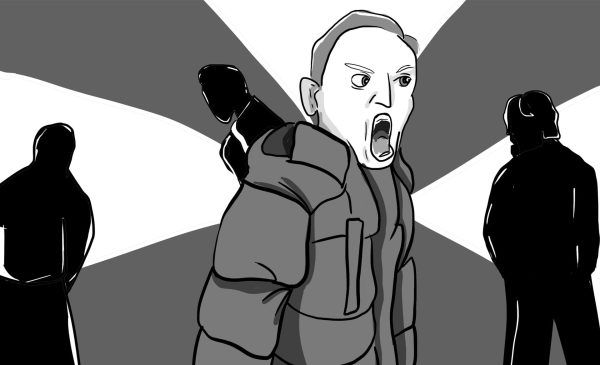REVIEW: Questions unanswered by ‘Malcolm & Marie’ mars film as two-dimensional
IMDB for The DePaulia
Zendaya and John David Washington star in “Malcolm & Marie” from writer-director Sam Levinson
The best part about Sam Levinson’s “Malcolm & Marie” is that it’s a quarantine movie that isn’t about quarantine. The worst part is everything else.
The film tells the story of Malcolm (John David Washington), a filmmaker whose new movie is a huge hit, and his girlfriend Marie (Zendaya), whom he forgot to thank at the premiere, even though her past struggles with addiction inspired the film itself.
Written and directed by Levinson, shot on black-and-white 35mm film with Zendaya and John David Washington front and center, the film has all the style of a Hollywood classic with awards season dreams, but none of the substance.
The film begins when the pair arrive home from the premiere of Malcolm’s new film, for which he has earned massive amounts of praise. As he waits for reviews to start rolling in, Marie expresses her annoyance that Malcolm didn’t thank her at the premiere, sparking Malcolm’s first of many rants, revealing that he is a selfish jerk who believes that the world should revolve around him.
This conversation is followed by a moment of quiet that doesn’t last long before Malcolm embarks on another loud soliloquy about how Marie doesn’t support him or that she threw her career away or that she’s jealous or that reviewers are awful and don’t understand him. Honestly, after the first 20 minutes, it’s hard to follow what the pair is even arguing about.
Initially, the film does a nice job depicting the lows in a relationship, but it quickly becomes apparent that the film is going nowhere. Each argument is followed by another argument, followed by another argument, until 106 minutes pass and the film ends.
Sure, some of the monologues are well-delivered, and it is clear that both actors are passionate about the film, but with such a redundant script, it’s hard for audiences to stay engaged. The arguments go on for too long and never get anywhere, and again, there is literally nothing else happening in the film besides arguing.
The film hits a climax when the first review for Malcolm’s film comes in. After more than two minutes of screaming from Malcolm while he looks for his phone and his wallet to get past the paywall on the article, we finally get to hear what this reviewer has to say. It’s a positive review that calls the film a “cinematic tour de force,” but for Malcolm, it’s not enough. He is furious that she considers factors outside of his interpretation of the film, like the main character’s race, or the filmmaker’s gender. When the reviewer writes that he is “reveling in the trauma of a woman” because he included a scene where the main character is shirtless, Marie says that she probably just didn’t think that the nudity was necessary, reminding him that the review was actually positive overall.
However, in a way-too-long response, Malcolm says that “you can’t hang everything on identity. You can’t say that I brilliantly subverted this trope ‘cause I’m Black, but I fell into this one because I’m a fucking man!”
Levinson seems to be commenting on the idea that the identity of the filmmaker doesn’t matter, but the speech quickly devolves into furious ranting that just makes Malcolm look like a prick and completely loses the initial point. Again, this speech was prompted by a mostly positive review. I’d hate to see what he’d do if a review was negative.
This is the main problem with the film. It explores so many issues, but never expands on them, simply moving on to the next argument and leaving the other conversation in the dust. The film seemed like it was going to be a standout, reflecting what it’s been like in quarantine to be cooped up with the same person or people with nothing to do and nowhere to go, but because the movie was made so hastily — it was written in six days and filmed in two weeks — the characters don’t expand outside of a caricature.
Malcolm and Marie are locked in a terrible and toxic relationship, but the relationship is never examined beyond the childish insults they throw back and forth with each other. By the end of the film, if you make it that far, the viewer is exhausted and emotionally drained.
Two fantastic actors plus an accomplished writer and director plus old Hollywood style should equal a great art piece that the Academy would eat up, but due to the rushed production, redundant script, and volatile relationship, the film is overwhelming and stays in one high-stakes place the whole time.
If you like romantic films about a couple who have their issues, but get through it because of their love for each other, this is not the film for you. However, if you’re interested in watching two people scream at each other for two hours in black and white, “Malcolm & Marie” will not disappoint, though I’d pour a drink before watching.











